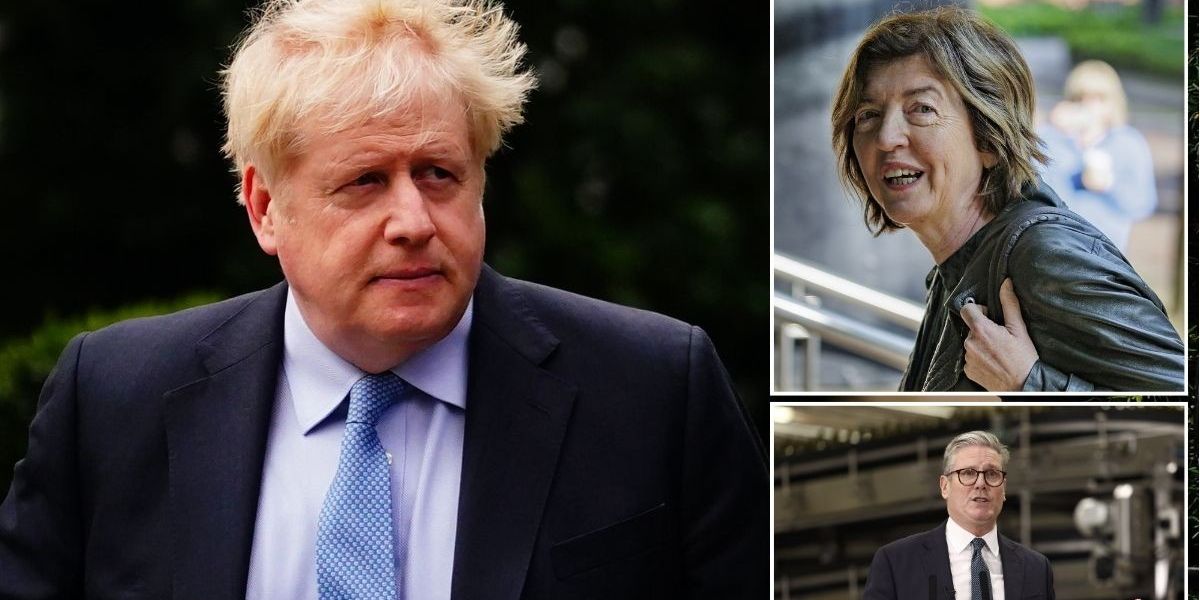Boris Johnson’s Regret Over Sue Gray’s Appointment: A Reflection on Leadership and Accountability
In a recent interview with Camilla Tominey on GB News, former Prime Minister Boris Johnson candidly expressed his regret over appointing Sue Gray as the investigator into the partygate scandal. This revelation comes as Johnson prepares for the release of his memoir, “Unleashed,” set to hit the shelves on October 10. The discussion not only sheds light on Johnson’s reflections regarding his time in office but also highlights the intricate dynamics of political appointments and their far-reaching consequences.
The Context of the Appointment
Johnson appointed Sue Gray to investigate allegations of lockdown-breaching parties held in Downing Street during the COVID-19 pandemic. This decision was made after the outgoing Cabinet Secretary, Simon Case, faced scrutiny for attending a similar event. Gray’s report, which ultimately criticized the behavior of government officials, stated that many would be “dismayed” by the scale of misconduct at the heart of the government. She emphasized that the public deserved the highest standards of behavior from their leaders, a standard that was evidently not met.
Acknowledgment of Mistakes
During the interview, Johnson reflected on his decision to appoint Gray, stating, “I thought it was extraordinary, to be honest, but there you go.” He admitted, “You asked me about mistakes I made, I shouldn’t have appointed her and asked her to do that thing.” This acknowledgment of error is significant, as it illustrates Johnson’s recognition of the political miscalculations that contributed to his eventual downfall.
The Fallout from Gray’s Report
Gray’s investigation culminated in a report that not only detailed the events of partygate but also pointed to “failures of leadership and judgment” within No. 10 and the Cabinet Office. Johnson’s admission of regret is compounded by the fact that Gray was later appointed as Chief of Staff to Labour leader Sir Keir Starmer, a move that many interpreted as a political coup. Johnson noted that he was unaware that Gray had already been approached for the role by Ed Miliband, which adds another layer of complexity to the situation.
Political Rivalry and Infighting
Johnson’s comments also included a pointed critique of Starmer and the internal dynamics within the Labour Party. He remarked on the apparent infighting in Downing Street, suggesting that the current leadership was struggling with its own challenges. “Far be it for me to intrude on a neighbour’s private grief, but I do wonder what the hell on earth is going on with those guys?” he quipped, referencing the tensions that have surfaced within Starmer’s team.
Defending His Legacy
Despite the controversies surrounding partygate, Johnson defended his administration’s handling of the COVID-19 pandemic, particularly the vaccine rollout, which he described as “absolutely outstanding.” He argued that the civil servants and staff in Whitehall were not intentionally flouting the rules but were instead caught in a challenging and exhausting environment. “I didn’t see people partying, right? It didn’t, and I really don’t think those civil servants set out to break the rules and to have a great time,” he stated, painting a picture of a government under immense pressure.
The Impact of Partygate on Johnson’s Premiership
The fallout from partygate significantly eroded public trust in Johnson and the Conservative Party. Support for the Tories plummeted as revelations about the parties emerged, culminating in Johnson’s eventual resignation following the Chris Pincher affair. Many observers believe that the damage inflicted by the partygate scandal had already set the stage for his political demise long before he was fined by the Metropolitan Police.
Conclusion
Boris Johnson’s reflections on his appointment of Sue Gray reveal much about the complexities of political leadership and accountability. His acknowledgment of mistakes, coupled with his defense of his administration’s actions during the pandemic, paints a nuanced picture of a leader grappling with the consequences of his decisions. As the political landscape continues to evolve, Johnson’s insights serve as a reminder of the delicate balance between governance, public perception, and the often unpredictable nature of political rivalries. With the release of “Unleashed” on the horizon, the former Prime Minister’s narrative promises to provide further revelations about his tumultuous time in office and the lessons learned along the way.
